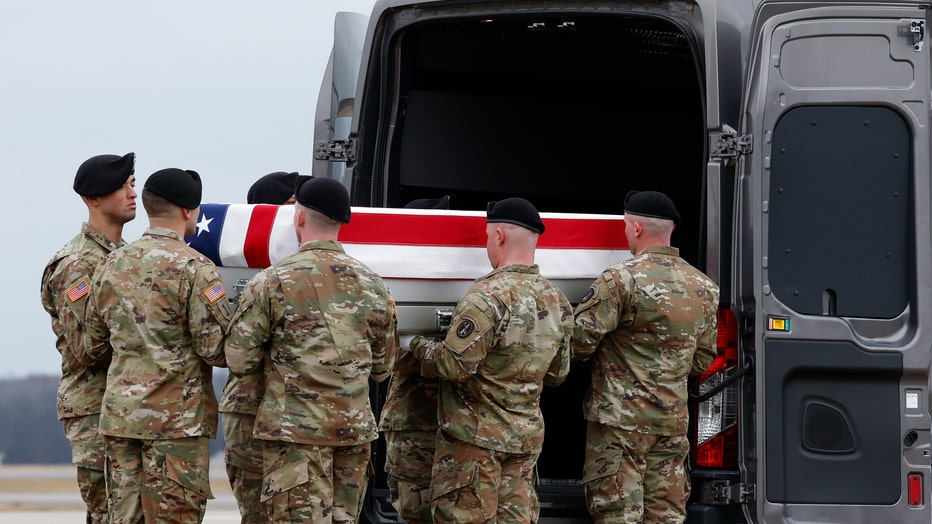Middle East airstrikes: Retired U.S. Air Force General weighs in as U.S. responds to deadly drone attack
PHOENIX - With the U.S. carrying out airstrikes against various targets in Iraq and Syria on Feb. 2, a retired air force major general is weighing in on this latest development in the Middle East.
The airstrikes, according to the U.S. Central Command, targeted Iran’s Islamic Revolutionary Guards Corps (IRGC) Quds Force and "affiliated militia groups." U.S. aircraft, including some long-range bombers flown from stateside bases, struck more than 85 targets, including what CentCom described as command-and-control operations centers, intelligence centers, rockets, and missiles, unmanned aerial vehicle storages, and logistics and munition supply chain facilities.
The strikes came days after three U.S. soldiers were killed in a drone attack on a base in Jordan. While they appeared to stop short of directly targeting Iran, President Joe Biden has issued a statement warning that the military response would continue ‘at times and places of our choosing.’
"I'm disappointed that it's reached this point"

A U.S. Army carry team moves a flagged draped transfer case containing the remains of Army Sgt. William Rivers during a dignified transfer at Dover Air Force Base on February 02, 2024 in Dover, Delaware. U.S. (Photo by Kevin Dietsch/Getty Images)
Maj. Gen. Mick McGuire (Ret.) said he is not surprised by the military response.
"It's unfortunate that it's gotten to this point. We still are mourning the loss of the servicemen lost the last week, and the Arizona guardsmen that were injured in Jordan," said Maj. Gan. McGuire. "I'm disappointed that it's reached this point. We want to make sure everybody is safe, but I'm also hopeful that this will cut back on the frequency and level of violence that our servicemembers are seeing overseas serve as a deterrent."
Maj. Gen. McGuire said he has seen the cycle repeat itself too many times to believe that the strike on Friday will end it.
"I have long said, as a member of the military, that any protracted engagement in any theater without a clearly defined objective for our military is going to end up just bogging down," said Maj. Gen. McGuire. "You can tell them exactly what you want them to do. They're the very best at it. You can tell them strike a few targets tonight, and then sit back and wait three more weeks and we'll strike a few more. This could go on in perpetuity."
Any time the U.S. strikes back, Maj. Gen. McGuire said, it is appropriate because the country has a right to defend itself.
"We need increased resources and increased capabilities and short range missile defense, long range missile defense, theater area, high altitude defense, all these things. We have a limited amount of those resources. We choose to put them in certain strategic locations., but we unfortunately are leaving a lot of our guys uncovered," said Maj. Gen. McGuire.

